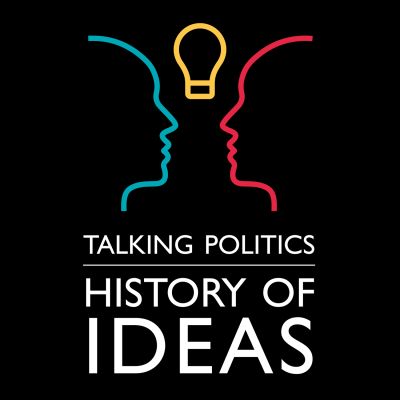A new series of talks by David Runciman, in which he explores some of the most important thinkers and prominent ideas lying behind modern politics – from Hobbes to Gandhi, from democracy to patriarchy, from revolution to lock down. Plus, he talks about the crises – revolutions, wars, depressions, pandemics – that generated these new ways of political thinking. From the team that brought you Talking Politics: a history of ideas to help make sense of what’s happening today. Hosted on Acast. See acast.com/privacy for more information.
https://play.acast.com/s/history-of-ideas
Gesamtlänge aller Episoden: 20 hours 5 minutes
History of Ideas Q and A
A special episode in which David answers some of the audience's questions about the second series of History of Ideas. From how he chooses which writers and works to talk about, to whether Boris Johnson is the ultimate Benthamite and whether the i...
Shklar on Hypocrisy
Judith Shklar’s Ordinary Vices (1984) made the case that the worst of all the vices is cruelty. But that meant we needed to be more tolerant of some other common human failings, including snobbery, betrayal and hypocrisy. David explor...
Nozick on Utopia
Robert Nozick’s Anarchy, State and Utopia (1974) was designed as a rebuttal to Rawls but it was so much more than that. It offered a defence of the minimal state that appealed to the writers of The Sopranos and a vision of utopia that appealed...
Rawls on Justice
John Rawls’s A Theory of Justice (1971) changed the face of modern political philosophy by reinventing the question of what constitutes fairness. From ‘the veil of ignorance’ to ‘reflective equilibrium’ it introduced new ways of thinking about...
De Beauvoir on the Other
Simone de Beauvoir’s The Second Sex (1949) is one of the founding texts of modern feminism and one of the most important books of the twentieth century. It covers everything from ancient myth to modern psychoanalysis to ask what the relations ...
Schumpeter on Democracy
Joseph Schumpeter’s Capitalism, Socialism and Democracy (1942) contains a famous, and minimal, definition of democracy as the competition between political elites to sell themselves to the electorate. Schumpeter wanted to debunk more elevated ideas of ...
Schmitt on Friend vs Enemy
Carl Schmitt’s The Concept of the Political (1932) has been hugely influential on the left as well as the right of political debate despite the fact that its author joined the Nazi Party shortly after its publication. David explores the origin...
Luxemburg on Revolution
Rosa Luxemburg wrote ‘The Russian Revolution’ (1918) from a jail cell in Germany. In it she described how the Bolshevik revolution was going to change the world but also explained how and why it was already going badly wrong. David ex...
Nietzsche on Morality
Friedrich Nietzsche’s masterpiece The Genealogy of Morality (1887) sets out to explain where ideas of good and evil come from and why they have left human beings worse off. He traces their origins in what he calls the slave revolt in morality. David ex...
Butler on Machines
Samuel Butler’s Erewhon (1872) is a strange and unsettling book about a world turned upside down. Usually classified as utopian or dystopian fiction, it also contains an eerie prophecy about the coming of intelligent machines. David e...
